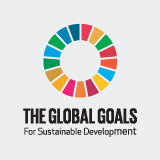Just Transition of the Informal Recycling Sector-Case Studies
In Brazil, India, and South Africa, the informal recycling sector plays a vital role in waste management and environmental protection. Recognizing the need for inclusion and justice, each country has implemented distinct strategies to support a just transition for waste pickers, centering dignity, income security, and social recognition.
Brazil has made significant strides by legally recognizing waste pickers as environmental service providers. Municipalities such as Belo Horizonte and São Paulo have partnered with waste picker cooperatives, integrating them into city waste management systems. These cooperatives receive technical support, infrastructure, and access to public contracts. This institutional support has helped formalize the status of thousands of informal workers, improving their income and working conditions. However, challenges such as bureaucratic hurdles and funding instability remain.
India’s approach has focused on grassroots organizing and municipal collaboration. The SWaCH cooperative in Pune, led by waste pickers—mostly women—has negotiated formal agreements with the Pune Municipal Corporation. Members provide door-to-door waste collection services and earn income directly from user fees. This model has strengthened the financial independence and public recognition of informal workers, but difficulties persist, including unequal pay, exclusion from wealthier areas, and a lack of social protection.
South Africa has emphasized advocacy, mapping, and data-driven inclusion. Reclaimer networks have conducted extensive documentation and awareness campaigns, demanding formal recognition and inclusion in policy frameworks such as the Extended Producer Responsibility policy. While not yet formally integrated into all municipal systems, these efforts have influenced local legislation and opened dialogue with government and private waste companies.
Across all three countries, key lessons include the importance of legal recognition, cooperatives or organized structures, municipal partnerships, and inclusive financial models. Despite differences in context, these case studies show that a just transition is possible when informal workers are treated as essential partners—not marginal actors—in circular economy systems.
Status: Completed
Type: Briefs
Author: GRID-Arendal, GPML, IAWP
Year of publication: 2025
Publisher: GRID-Arendal
Place of publication: http://grida.no









